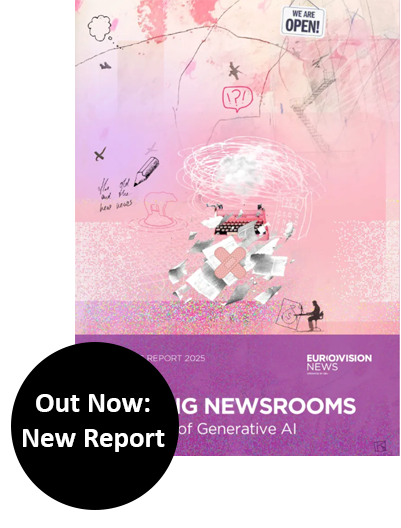Alexandra is passionate about making journalism and democracy fit for the digital world. As an internationally experienced media manager, board member, and coach she can support you if you need a coach or consultant, seasoned keynote speaker, panellist, or author. With more than 25 years of experience in journalism in major news organisations, 15 of these in leadership roles, she coached 26 publishers in WAN-IFRA’s Table Stakes Europe Program for digital transformation and is a member of the organization’s Expert Panel. She serves on the boards of Republik (Switzerland) and Constructive Institute (Denmark) and is Senior Research Associate with the Reuters Institute for the Study of Journalism at the University of Oxford where she developed and directed the profit center Leadership Programmes. Before she was Managing Editor of Süddeutsche Zeitung in Munich. She teaches leadership and strategy as a honorary professor at TU Munich’s TUM School of Management.
EBU News Report 2025: Leading Newsrooms in the Age of Generative AI, by Alexandra Borchardt. You prefer listening to reading? Watch the webinar here, oder listen to the podcast (with Olle Zachrison).
EBU News Report 2024: Trusted Journalism in the Age of Generative AI, by Alexandra Borchardt (lead), Kati Bremme, Felix Simon, and Olle Zachrison. Watch also the Webinar Alexandra recorded with Nic Newman, Reuters Institute for the Study of Journalism, University of Oxford.
EBU News Report 2023: Climate Journalism That Works – Between Knowledge and Impact, by Alexandra Borchardt, Katherine Dunn, Felix Simon. Reach out for Strategy-Workshops.
EBU News Report 2021 – 2022, “What’s Next? Public Service Journalism in the Age of Distraction, Opinion, and Information Abundance“, by Alexandra Borchardt and Felix Simon. Here is an appetizer on video.
Watch Alexandra’s March 2021 TEDx Talk: Reinventing Education For A Connected Society



